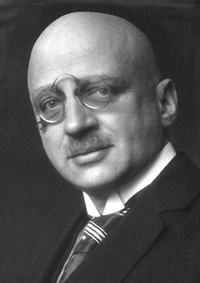Fritz Haber
Scientist
Fritz Haber (German: [ˈhaːbɐ]; 9 December 1868 – 29 January 1934) was a German chemist of Jewish origin who received the Nobel Prize in Chemistry in 1918 for his development of the Haber process, which was the first industrially perfected method of synthesizing Ammonia from Nitrogen and Hydrogen gasses. This invention was of importance to the synthesis of fertilizers and explosives. The food production for half the world's current population depends on this method for producing fertilizer. Haber, along with Max Born, proposed the Born–Haber cycle as a method for evaluating the lattice energy of an ionic solid.Notoriously, Haber is also remembered to history as the "father of chemical warfare" for his actions during the Second Battle of Ypres and for his years of pioneering work developing and weaponizing chlorine and other poisonous gases during World War I.
Personal facts
| Birth date | December 09, 1868 |
|---|
| Birth place | |
|---|
| Date of death | January 29, 1934 |
|---|
| Place of death | |
|---|
| Education | Humboldt University of Berlin Technical University of Berlin |
|---|
| Spouse | |
|---|
| Known for | |
|---|
